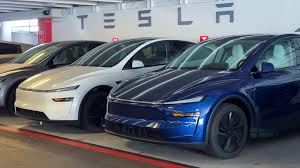
Tesla Inc. is reportedly pressuring U.S. suppliers to remove China-made components from vehicles sold in the United States, citing tightening tax-credit regulations and national-security concerns. Suppliers are said to be actively exploring alternative sources outside China to meet the guidance, though Tesla has not publicly commented on the directive.
According to the reports, the move is linked to stricter EV tax-credit rules that increasingly favor vehicles with higher domestic content, as well as heightened scrutiny of Chinese supply chains in sensitive technology sectors.
Suppliers indicate they are already assessing new sourcing strategies to comply with Tesla’s request while maintaining production timelines.
Industry experts warn that Tesla’s potential supply chain overhaul could ripple across the automotive sector. If Tesla successfully restructures its sourcing away from China, other automakers may face pressure to follow suit, potentially reshaping global EV manufacturing and prompting a shift in how critical components are sourced.
Analysts note that the development highlights the growing intersection of policy, national security, and corporate strategy in the EV market. Automakers are now navigating an environment where regulatory incentives, geopolitical concerns, and the need for competitive efficiency are increasingly intertwined.
Tesla’s approach could serve as a blueprint for how U.S.-based EV manufacturers adapt to these pressures while minimizing reliance on Chinese suppliers.


